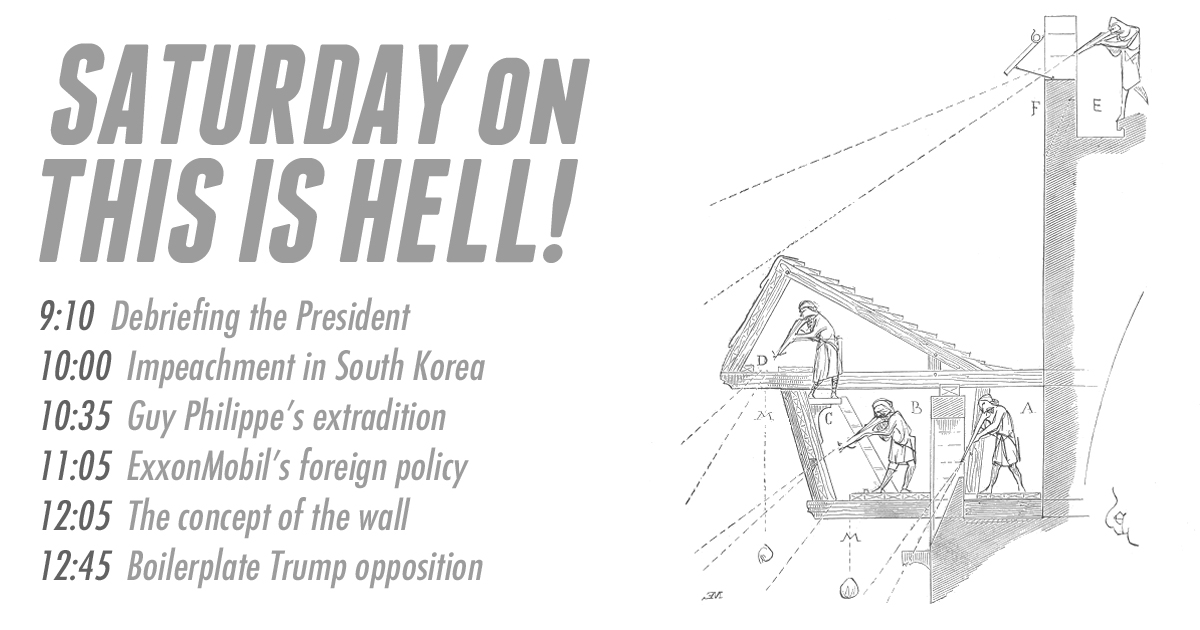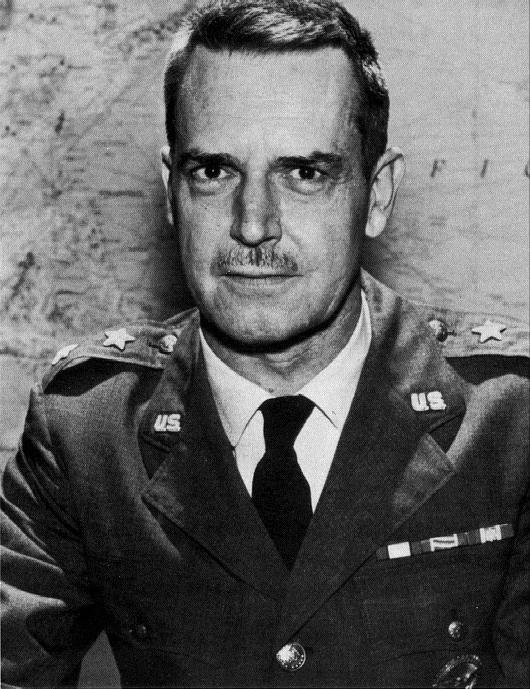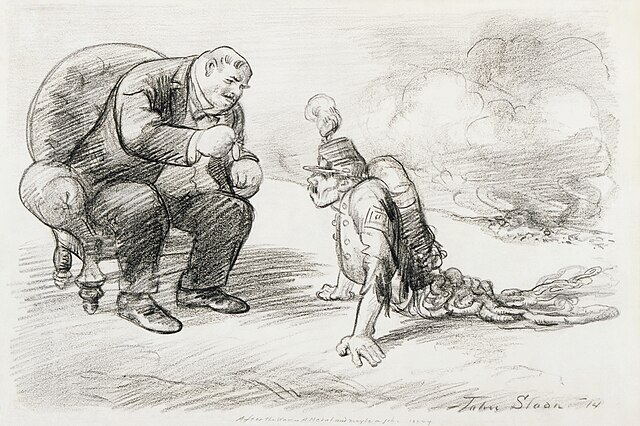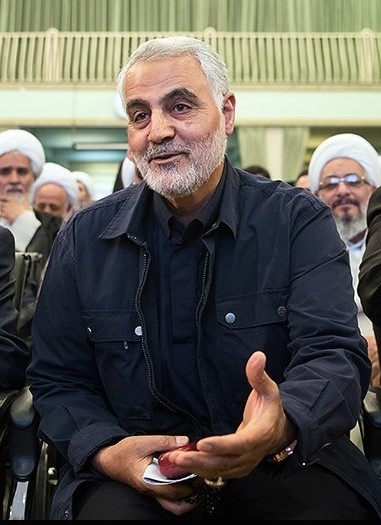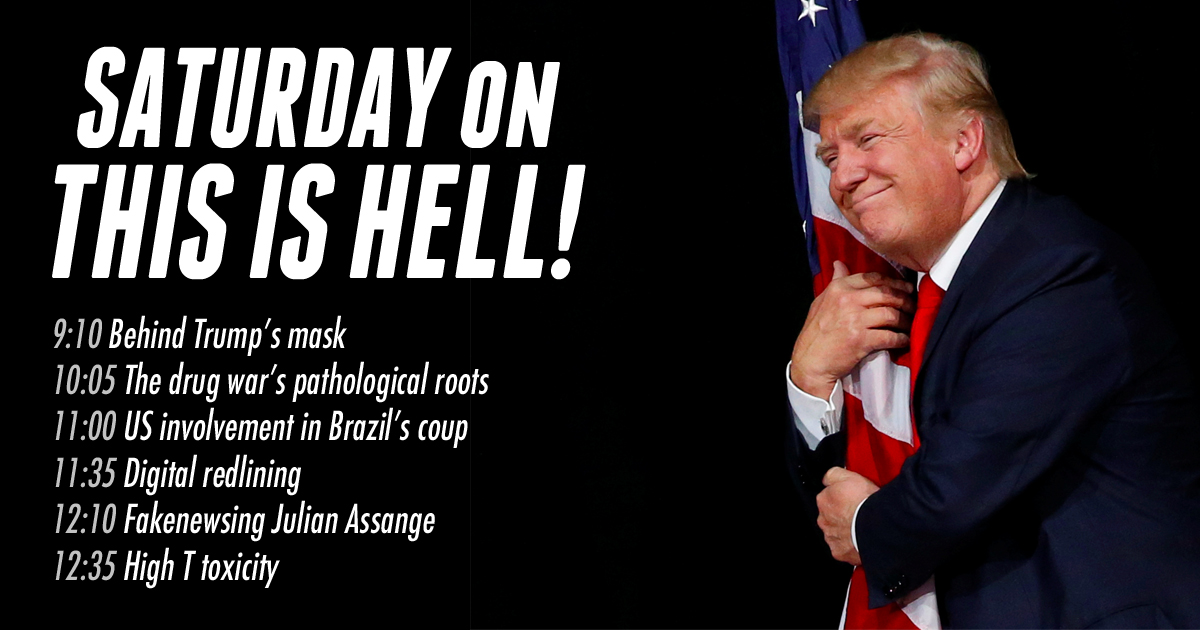Listen live from 9AM - 1:00PM Central on WNUR 89.3FM / stream at www.thisishell.com / subscribe to the podcast
9:10 - Former CIA analyst John Nixon explains what he learned about US intelligence from the interrogation of Saddam Hussein.
John is author of Debriefing the President: The Interrogation of Saddam Hussein from Blue Rider Press.
10:00 - Live from Seoul, Marc Flury catches us up on South Korea's shaman / fairy / cult / horse dancing / impeachment story.
Marc also dropped the hottest, best-reviewed videogame of 2016, THUMPER, we'll hear about that too.
10:35 - Researcher Jake Johnston explains what Guy Philippe's extradition reveals about US influence in Haiti.
Jake wrote the article Senator-Elect and Former Paramilitary Leader Guy Philippe Arrested on Drug Charges for CEPR.
11:05 - Journalist Antonia Juhasz investigates Rex Tillerson's past and the foreign policy of Exxon Mobil.
Antonia wrote the article Rex Tillerson Could Be America's Most Dangerous Secretary of State for In These Times.
12:05 - Writer Elliot Sperber discusses the concept of the wall in an age of neoliberalism and mass migration.
Elliot is author of the essay The Concept of the Wall for ROAR Magazine.
12:45 - In a Moment of Truth Jeff Dorchen reveals his dissatisfaction with our incoming president.
Sorry to be so specific and surprising with the text of Jeff's tease.
On This Day in Rotten History...
In 1131 – (886 years ago) – a Danish prince named Canute Lavard was killed by his cousin Magnus, who viewed him as competition for the Danish throne. Canute was the son and nephew of Danish kings and had been chosen by his uncle, King Niels of Denmark, to establish peace with the Slavic warriors who kept attacking the area of what is now the border between Denmark and Germany. Canute’s success in that assignment made him a contender for kingship, a favorite of the Holy Roman Emperor, and a target of the jealous hatred of Magnus, the son of King Niels. A few years after murdering Canute, Magnus himself would die in battle, still trying to cement his own claim to the throne. Canute, meanwhile, would be canonized as a Roman Catholic saint in 1169.
In 1355 – (662 years ago) – Inês de Castro, the mistress of Crown Prince Pedro of Portugal, was beheaded in front of her own children on orders of Pedro’s father, King Afonso IV. Inês had been a lady-in-waiting to Constança of Castile, Prince Pedro’s lawful wife, whom he had been forced to marry for political reasons. Pedro and Inês became passionate lovers, and after Constança died of childbirth, Pedro went on to have four more children with Inês. But King Afonso still would not let his son marry Inês, since he feared that it would confuse future claims of royal succession, which could escalate into bloody political conflict. Instead, the king sent three courtiers to kill Inês. When the king died two years later, Pedro inherited the throne and had two of the courtiers executed by having their hearts ripped out of their bodies as he watched. Pedro then announced that he and Inês had been secretly married, thus retroactively and posthumously making her queen. On his orders, her body was exhumed, dressed in royal finery, presented to the court, and then given a majestic reburial. In ensuing centuries the story of Inês de Castro would be told in countless works of literature, and would give rise to a conversational expression that persists in Portugal to this day: “Agora é tarde; Inês é morta” — It’s too late, Inês is dead.
In 1948 – (69 years ago) – Captain Thomas Mantell, a twenty-five-year-old Air National Guard pilot and World War II veteran on routine patrol in the skies... read more
Listen live from 9AM - 12:45PM Central on WNUR 89.3FM / stream at www.thisishell.com / subscribe to the podcast
9:10 - Author Mark Danner looks through Trump's song and dance routine, and sees nothing.
Mark wrote the piece The Real Trump for New York Review of Books.
10:05 - Writer Alexandra Chasin explores the pathologies of America's drug war architect, Harry Anslinger.
Alexandra is author of Assassin of Youth: A Kaleidoscopic History of Harry J. Anslinger's War on Drugs from University of Chicago Press.
11:00 - Live from São Paulo, Brian Mier looks for signs of US involvement in Brazil's 2016 coup.
Brian wrote The US & Brasil's Coup of 2016, and translated Luciana Itikawa's piece The Golpista Everyman & the “Clean” City for Brasil Wire.
11:35 - Journalist Julianne Tveten explains why the Net isn't neutral for poor customers.
Julianne wrote the article Digital Redlining: How Internet Service Providers Promote Poverty for Truthout.
12:10 - Journalist Stefania Maurizi talks about losing her Julian Assange interview to the fake news cycle.
Stefania's interview with Wikileaks founder Julian Assange was distorted by the Guardian's Ben Jacobs last month.
12:35 - In a Moment of Truth, Jeff Dorchen examines toxic masculinity and capitalism, like a boss.
Jeff is starting off 2017 on a high T note.
